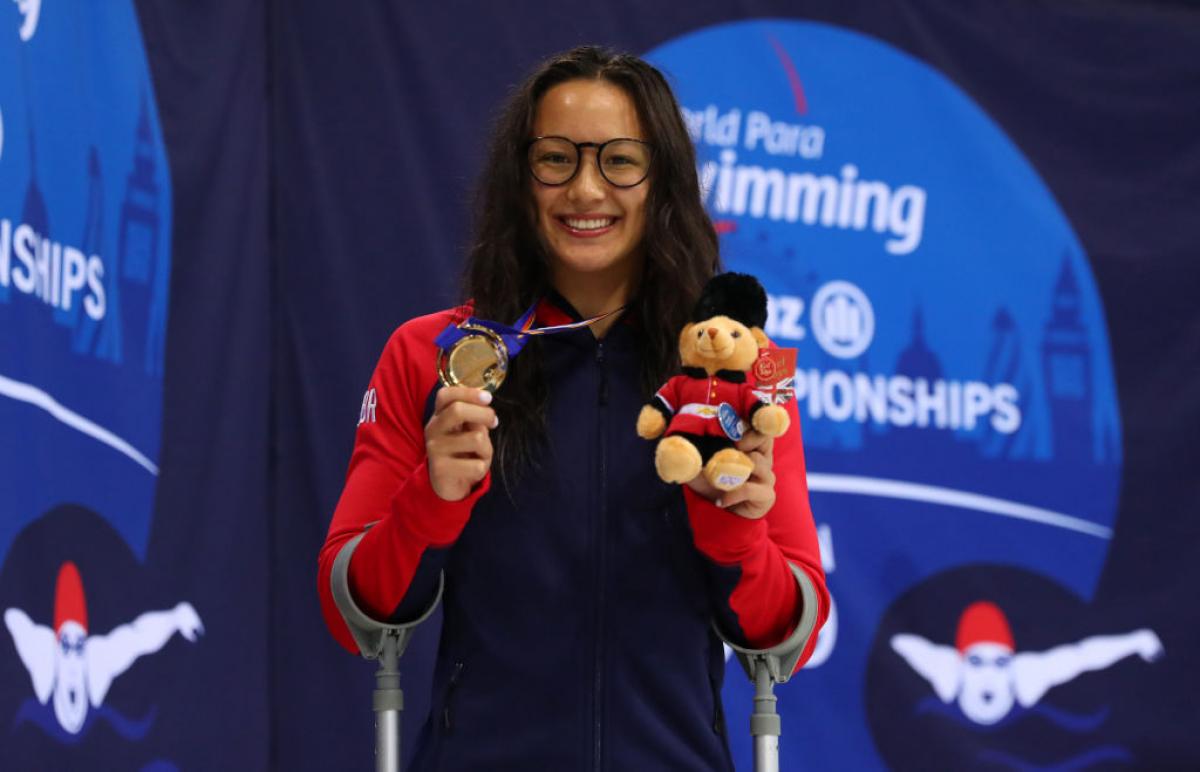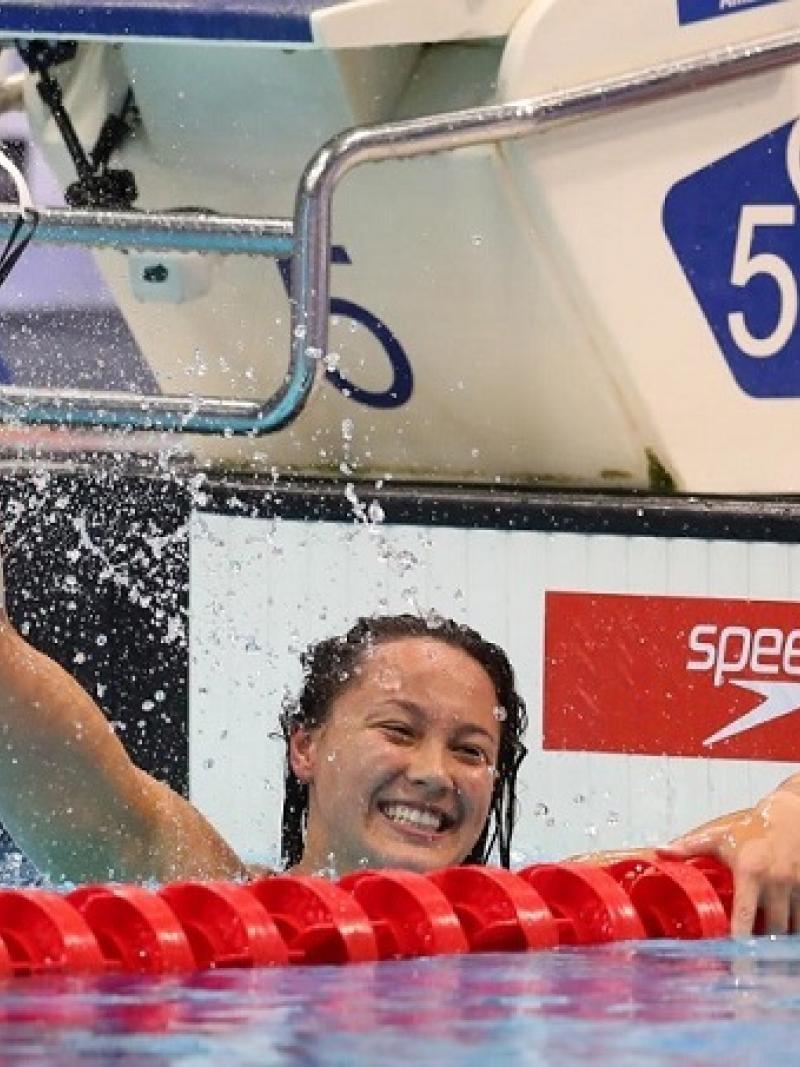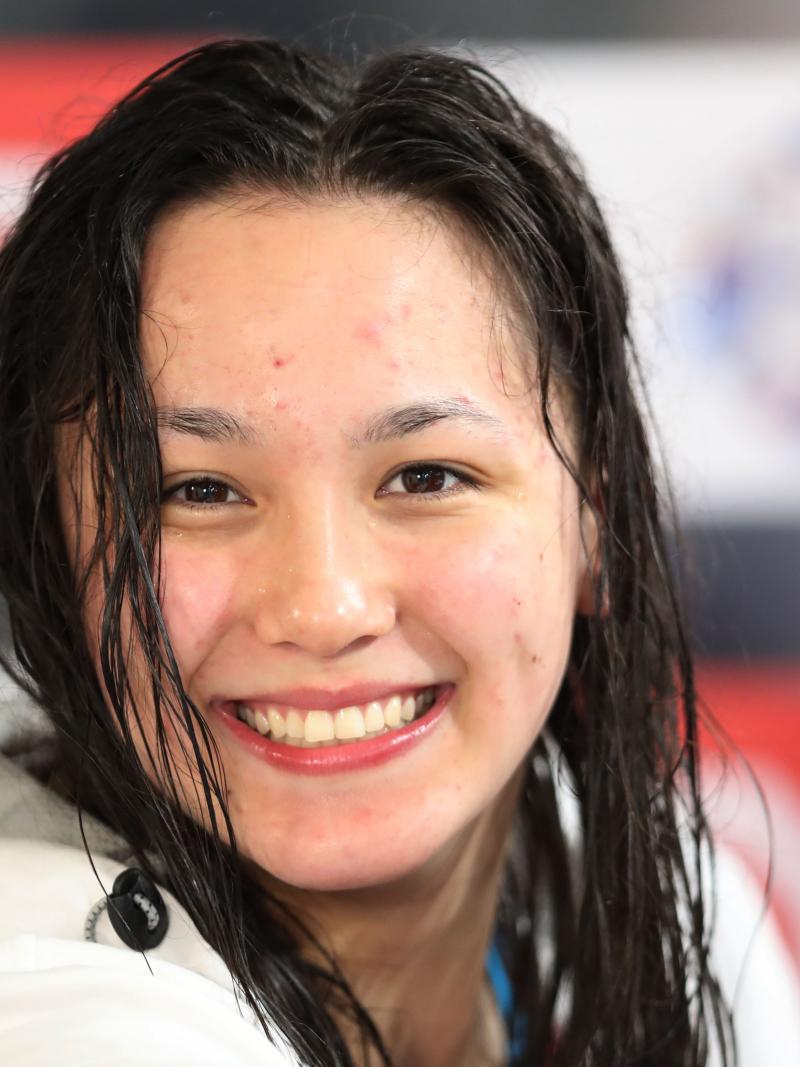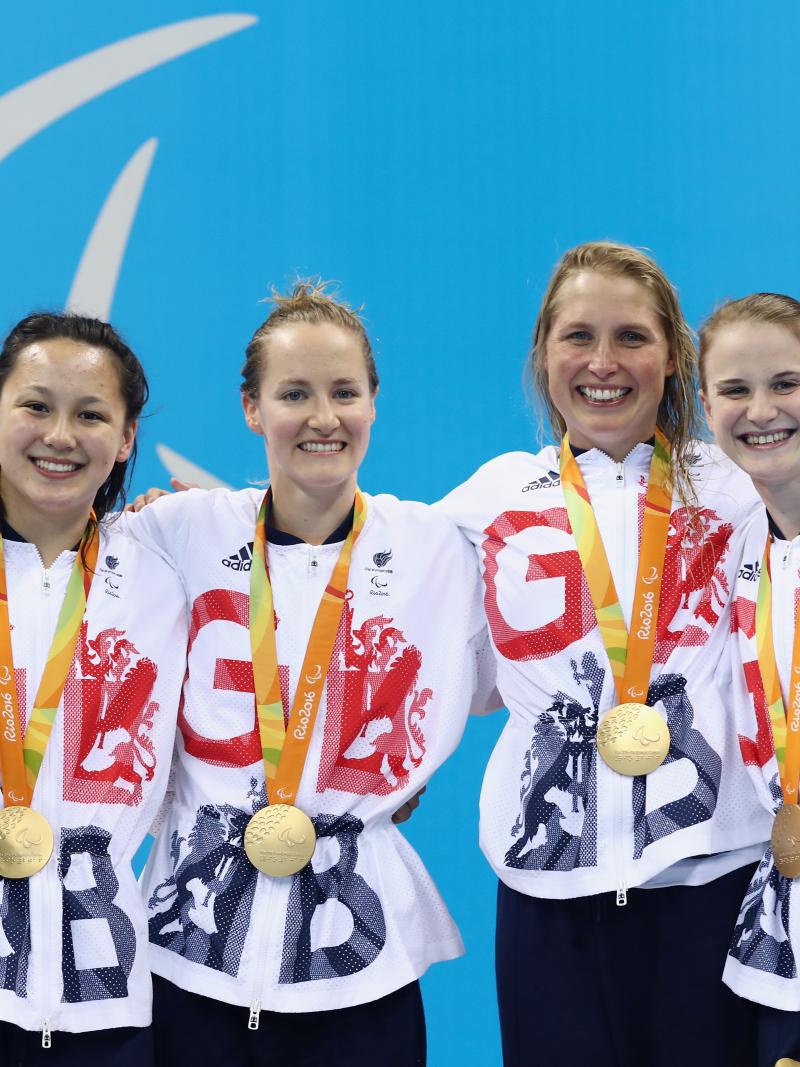Eight-time world champion Tai on the transformative power of Para sport
'Go for it. The freedom of sport and how enlightening it can be is something which everyone deserves to experience in their life, regardless of their abilities.' 11 May 2022
Paralympic champion Alice Tai does not remember when she first came to the pool, but the self-confidence – and new friends – that she gained on that day are still with her 10 years later.
Born with bilateral talipes, also known as club foot, Tai took up swimming as a child, but could not always keep up with her friends.
"I remember training with all of my friends when I was nine, 10 years old, and being aware that my kick was significantly slower to the point that I wouldn’t do kick sessions with them," Tai said. "I’d do something else because I couldn’t keep up."
Her sports career and outlook on life changed when she discovered Para sport.
Tai won gold as part of the British women’s 4x100m medley 34pts relay team during her Paralympic debut at Rio 2016, as well as an individual bronze in the women’s 100m backstroke S10.
But it was not until three years later that she truly came into the spotlight, winning seven gold medals at the 2019 World Para Swimming Championships in London.
One of the favourites heading into the Tokyo 2020 Paralympic Games, Tai was forced to withdraw two months before the event due to medical issues.
In early 2022, she underwent an amputation of her right leg below the knee to address the increasing pain in her foot. It was a surgery that Tai has been considering for 10 years and she credited the empowerment she gained from Para sport for giving her the confidence to make that decision.
"I definitely feel empowered by my own situation and I think Para sport has had a huge influence on that," she said. "I’m very sure of my own decisions because I trust myself. I’ve been put in positions where I’ve had to make decisions within sport and now I trust my critical thinking and I know that I know myself well to make decisions like whether or not an amputation is going to be best, among others."
PARA SPORT spoke to Tai to discover how the three core elements of Para Sport – awareness, community and freedom – helped her to embrace her disability and what advice she has for people considering taking up sports.
Awareness
PARA SPORT: What does Para Sport mean to you?
Alice Tai: It encompasses a lot. When I was younger and I was grassroots and figuring my way into Para sport in general and then fell into the Paralympics, I didn’t really know that I could even compete as a Para swimmer. So for me, Para Sport is huge in that it’s going to help more people realise that they can compete in sport, even just get involved in sports for a social aspect, but have that opportunity. From there it’s the development of people as athletes, but also just as human beings. It’s great to be in an environment with people who understand what you’re going through and form those connections, so it’s more than just Para Sport. It’s something huge which encompasses the elite athletes, the grassroots, the people who are there to just have a good time and meet new friends. It’s such an incredible thing.
Take us back to you swimming for the first time. Can you remember it? Was your impairment on your mind at that time?
AT: When I was younger, I wasn’t aware that I had an impairment at all. There were things that I couldn’t do. I just didn’t know why I couldn’t do them, and it was only as I got older and started understanding why I had surgery and why I was at the hospital all the time that kind of clicked, and I realised that I actually had a disability.
It never really occurred to me that I could be a Para swimmer.
Children can feel anxious before trying a sport, particularly a child with a disability. What advice would you give kids if they asked, should I try Para sport?
AT: It will do amazing things. The freedom of sport and how enlightening it can be is something which everyone deserves to experience in their life, regardless of their abilities. Honestly, go for it. For me, my first time at a Para swimming competition, it blew my mind because everyone there, every single kid had an impairment and we were all on the same page and we all understood each other, and it helped me accept myself as well as just process the fact that I was disabled and be completely OK with that. I remember before then thinking that I was so alone, but then realising that in fact there was a whole community out there full of wonderful people and wonderful support.
Community
Does Para sport give you a sense of belonging?
AT: The penny drops when you are around people with different impairments and disabilities, which remind you of your own because you all have shared experiences and just being within that environment where you can talk to someone and be comfortable expressing yourself and have your disability on show and not feel as though it’s something that you should hide. It’s such an amazing experience and I can’t really share how poignant that was when I was growing up in terms of learning to accept myself and enjoying what I can do and finding ways to adapt with my disability. I learned so much that I wouldn’t have known from other athletes about how to do things in different ways and that shared knowledge and environment is incredible.
Do you have memories of those first races and what did you learn?
AT: I remember my first Para competition. It was in Southampton and it was 31 October 2010 and it was my first-ever classification too. It was really cool being on poolside and seeing other people who reminded me of myself. I made friends who I’m still friends with today. At the start, it wasn’t about winning anything. It was just a way in which I could compete and make new friends and maximise my potential more than anything and feel comfortable in the environment.
Why is that sense of community important?
AT: When you have a disability, especially one that people can see, it’s difficult to (compare) yourself against your peers because there’s not much coverage or exposure. For me, I didn’t see anyone with club feet for ages, particularly in the media. It didn’t happen, and then to be brought into an environment with people your own age who feel the exact same way, it’s a massive relief and the bonding that happens when you meet someone who you can confide in and you know understands what you’re going through, personal things, it’s really important. It’s such a precious moment and I don’t think it’s something that you would get without the ability to socialise through sport.
Freedom
As a person with a disability, how has Para sport empowered you?
AT: Para sport has empowered me so much, from feeling confident in myself and being able to talk about my disability and educate others to simply doing the best that I can every day. I understand there are things that I still can’t do. There are certain tasks, which I will always struggle with, but the empowerment that I’ve gained from Para sport makes me feel not like it’s a disability to not be able to do those things and it’s more of a, ‘I’m going to have to figure out other ways to do it’.
It happens so quick. I started Para sport and then a year later, I felt more confident. You can see it in pictures. I’m really shy and then on poolside I’m loving it, I’m with my friends and it’s a great environment.
Why is it important for athletes with disabilities to have a sense of freedom?
AT: Sport is such a gateway to freedom and dismantling barriers and being able to experience things and do them on your own terms is something that sport can give to you.
The world isn’t accessible. It’s not fully accessible and it’s difficult to navigate within that because there are barriers, which are brought up. Simple things, like a lift being out of order meaning you can’t get up the stairs, it’s simple things like that, which really shouldn’t be an issue today. But then you go into your arena, you get into the pool, you go to the track and you have that time to take control back and participate in something which is very much on your own terms. You can gage your own level of success. It doesn’t have to be a gold medal or a record. It can be whatever you want it to be and that’s such a beautiful thing about sport and the freedom that you can gain from it.

 Facebook
Facebook
 Instagram
Instagram
 Twitter
Twitter
 Youtube
Youtube



